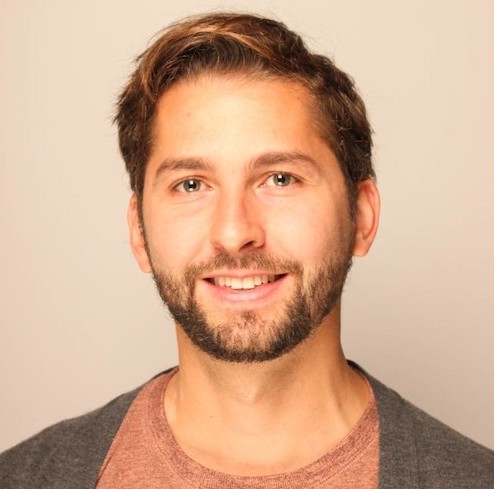SEConfig
1st International Workshop on Software Engineering for Infrastructure and Configuration Code
SEConfig will be held on Friday, November 15, 2019, co-located with the 34th International Conference on Automated Software Engineering (ASE 2019) in San Diego, CA, USA.
announcements
November 1, 2019 - The schedule of the workshop has been posted. Contact us if you have questions!
September 15, 2019 - A reminder - camera-ready versions are due Sept. 16th!
August 12, 2019 - A set of papers has been accepted. Stay tuned to learn more.
July 1, 2019 - SEConfig will be hosted as a workshop at ASE - start getting your papers ready!
program
Session 1: Opening & Keynote
-
9:00 am - 9:15am - Welcome announcement and overview of goals for the day.
-
9:15 am - 10:15am - Opening Keynote. Noise in CI/CD data : Shane McIntosh
-
10:15 am - 10:30 am - Breakout disucssion groups
10:30 - 11 : Coffee Break
Session 2
-
11:00 am - 11:15 am (Talk) + 11:15 am - 11:20 am (Questions)
Identifying Network Configuration Errors from SIP Traffic by Learning State Machines
Hugo Reinbergen and Sicco Verwer -
11:20 am - 11:50 am (Talk) + 11:50 am - 11:55 am (Questions)
Synthesizing Mutable Configurations: Setting up Systems for Success
Tim Nelson, Natasha Danas, Theophilos Giannakopoulos and Shriram Krishnamurthi -
11:55 am - 12:30 pm Breakouts
12:30 - 2:00 : Lunch Break
Session 3
-
2:00 pm - 2:30 pm (Talk) + 2:30 pm - 2:45 pm (Breakout)
Encoding Adaptability of Software Engineering Tools as Algorithm Configuration Problem: A Case Study
Maike Basmer and Timo Kehrer -
2:45 - 3:15 pm (Talk) + 3:15 pm - 3:30 pm (Breakout)
Toward Evaluation of Deployment Architecture of ML-based Cyber-Physical Systems
Lucas Gisselaire, Florian Carrio, Quentin Guerre-Berthelot, Bastien Zigmann, Masahide Nakamura and Lydie Du Bousquet
3:30 - 4:00 pm : Break
Session 4: Open Discussion
-
4:00 pm - 4:30 pm -
HackerNews Roulette -
4:30 pm - 5:00 pm-
Breakout Poster boarding -
5:00 pm - 5:30 pm -
Presentation (3 min/group)
Wrap up - lookout for a white paper and let us know if you want to contribute
6:30 pm - Informal Workshop Dinner
cfp
Call for Papers
Configuration errors (also known as misconfigurations) have become one of the major causes of system failures, resulting in security vulnerabilities, application outages, and incorrect program executions. Building tools for configuration file support, management, and verification has been an active direction of research. As support for configuration files grows, so too does the scope of their application, for example in domains such as Infrastructure as Code.
The 1st International Workshop on Software Engineering for Infrastructure and Configuration Code (SEConfig) provides a venue for researchers and practitioners to come together and discuss the open challenges in the domain of configurations, broadly interpreted. For example, What new security risks develop in the Infrastructure as Code paradigm, and how can we mitigate these? As the definition of a configuration languages is more dynamic than traditional programming languages, how can our tools automatically adapt? How can we verify the correctness of configurations when some errors manifest at system initialization time, while others only manifest under particular system environments? What is the best way to discover configuration setting recommendations and present them to a developer? The goal of the workshop is to gain clarity and specificity on the current open challenges in the area and understand how techniques from industry and various academic fields (e.g., Software Engineering, Verification, Programming Languages) can come together to advance the community’s solutions.
Topics
Topics of interest include, but are not limited to:
- Infrastructure and configuration code maintenance and evolution
- Specification learning and mining for configurations
- Infrastructure and Configuration testing and verification
- Infrastructure as Code and configuration repair
- Analysis of configuration usage patterns
- Analysis of configuration failure patterns
- New languages for configuration
Submission Information
SEConfig invites extended abstracts/short research papers, practice papers and experience reports, position and vision papers. All kinds of papers will be two to four (2–4) pages long. Extended abstracts (2 pages) and short research papers (4 pages) present on-going work where authors want to start a discussion and receive feedback from the community. Practice papers and experience reports (2–4 pages) provide insight intro problems and challenges faced in practice with possible steps for resolution and a call for further examination and discussion within the workshop. Position and vision papers (2–4 pages) formulate a higher level perspective and present potential directions of the field.
All submissions should be made through EasyChair
Overlap with previously published work should be indicated, but does not disqualify a submission if the presentation can be expected to be of enough interest. Submissions will be included, at the authors discretion, in published workshop proceedings following the workshop. Submissions do not need to be double-blinded, but should otherwise follow the general formatting guidelines.
Important Dates
Submissions due
July 30th 2019
- Notification to authors
- August 12th 2019
- Camera-ready copies due
- September 16th 2019
Committee
Organizers
 Jürgen Cito, Massachusetts Institute of Technology
Jürgen Cito, Massachusetts Institute of Technology
 Mark Santolucito, Yale University
Mark Santolucito, Yale University
Program Committee
Arjun Guha - UMass Amherst
Bram Adams - Polytechnique Montreal
Bridget Kromhout - Microsoft
Chris Parnin - NCSU
Christan Macho - AAU Klagenfurt
Christopher Meiklejon - Carnegie Mellon University
Coen De Roover - VUB
Ennan Zhai - Alibaba
Erik Wittern - IBM Research
Jay Goldberg - TwoSigma
Markus Raab - TU Vienna
Martin Gehrke - TwoSigma
Martin Schäf - Amazon Web Services
Robert McKinstry - HashiCorp Inc.
Ruzica Piskac - Yale University
Sara Achour - MIT
Shane McIntosh - McGill University
Tianyin Xu - University of Illinois at Urbana-Champaign